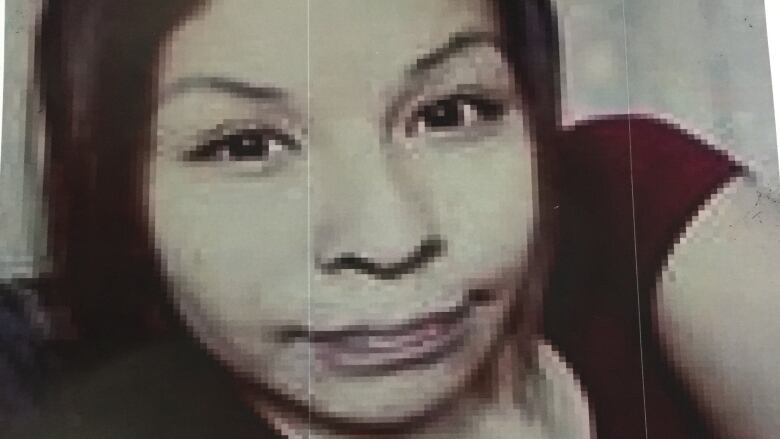First Nations police service recommends its own disbanding at suicide inquest
'It's heartbreaking that we're still here,' says Nishnawbe Aski Police Service board chair

The suicide of a First Nations woman in the back of a police truck is causing Canada's largest Indigenous police service to do some soul searching.
The Nishnawbe AskiPolice Service, which covers 34 First Nations in northern Ontario, told an inquest into Lena Anderson's death that it has neither the resourcesnor the legal foundation to do its job properly.
So it took the drastic step on Wednesday of asking the jury at the inquest to recommend the police force be disbanded if Ontario does not bring it under the province's Police Services Act by March 31, 2017.
- 'No one was coming to help me': Police officer recalls night woman died by suicide in his truck
- First Nations woman died by suicide in back of police car, inquest hears
- Officers no longer willing to face 'nightmarish situations' alone, union president says
"Enough is enough," said Nishnawbe Aski Police Service (NAPS) board chair Mike Metatawabin."We can't do this all the time where you promise something and then turn around and say you can't do it."
Metatawabin's eyes filled with tears as he listened to testimony about the last hour of Anderson's life.
On the evening of Feb. 1, 2013, Anderson's daughter was apprehended by a child welfare workerafter reports of a drinking partyin Kasabonika Lake First Nation, where alcohol is prohibited.
Witnesses say the young mother became frantic. That's when Const. Jeremy Swanson saidhetook the 23-year-old into custody for her own safety.
At that time, the remote First Nation had no holding cells and the police practice was to confine prisoners in the passenger compartment of the police pickup, a four-door Ford F150.
'Heartbreaking'
Swanson left Andersonalone for 16 minutes, according to his notes, while he went to wake up the only other police officer in the isolated community to assist him.
"For me it's heartbreaking,heartbreaking that we're still here, we're still waiting, we're still trying to make it better," Metatawabin said, recalling a previous inquest in 2009 into the deaths of two young men in Kashechewan First Nation.
Ricardo Wesley, 22 and James Goodwin, 20 burned to death on Jan. 8, 2006, while being held for intoxicationin cells thatdid not meet the fire code.
Nishnawbe Askipolice are not required to meet the adequacy standards set for other police services in Ontario because they donot fall under the Police Services Act.
Metatawabin believes that having that legislated backing would help the police service pressure its funders the federal and provincial governments to provide the money it needs to meet those standards.
Currently, he says, the police force receives less than half of what the provincial police have said it would cost it to provide service to the same communities.
"Every other person in Ontario, other than people living on reserve, have rights that the police are there to serve and protect to makethe community safer," said Christa Big Canoe, who represents Anderson's family at the inquest.
'Fold the whole program'
Big Canoe and Mike Maher, the lawyer for Swanson, added their support to the suggested recommendation from theNishnawbeAskipolice.
"From the perspective of my client, if they're not willing to put their money where their mouths are, we just need to fold the whole program," Maher said.
But the coroner's counsel asked jurors to be cautious about how far they should take their recommendations.
"Advocacy is not evidence," David Allantold them.
There is no timeline for when jurors must deliver recommendations, but it could be as soon as Thursday.
Ontario's Ministry of Community Safety and Correctional Services says it plans to introduce legislation in the spring that will "modernize" the Police Services Act and that it is consulting with First Nations on "exploring a legislative framework for First Nations policing."












_(720p).jpg)


 OFFICIAL HD MUSIC VIDEO.jpg)
.jpg)



























































































